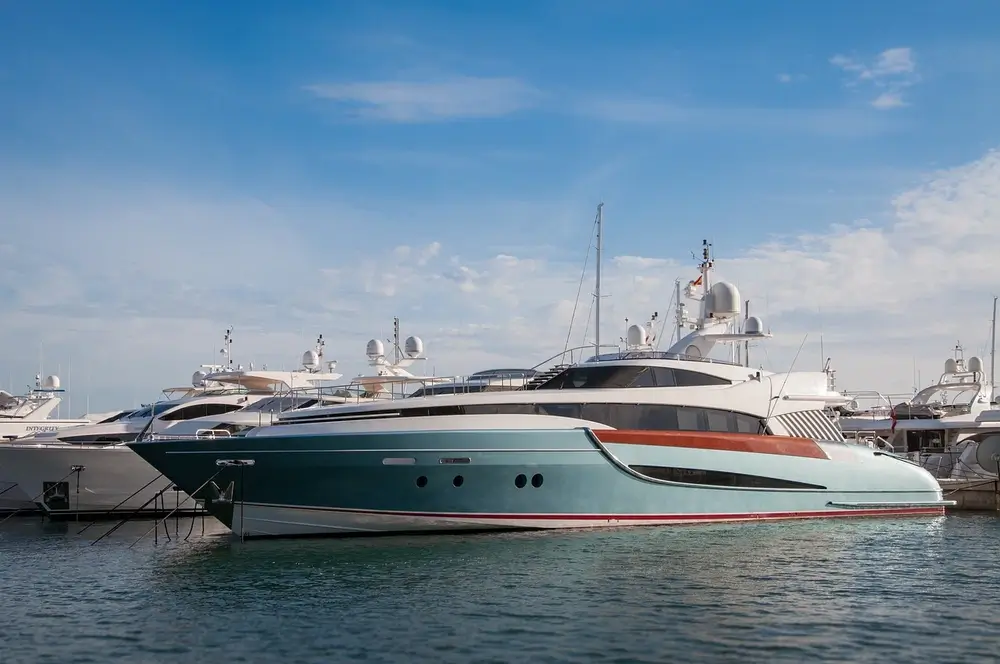Thinking of buying a yacht? It’s an exciting venture that promises luxury, freedom, and the open sea. But before you sail away into the sunset, there’s a lot to consider. Investing in a yacht is a significant financial commitment, and having in-depth knowledge can make all the difference.
This guide will walk you through everything you need to know before taking the plunge. We’ll explore different yacht types, budgeting, legalities, maintenance, and much more. By the end, you’ll be well-prepared to make an informed decision.
Yacht Types and Sizes
When it comes to yachts, one size does not fit all. From sleek sailing yachts to powerful motor yachts, the options are vast. Sailing yachts often appeal to those who enjoy the traditional sailing experience, using wind as their primary propulsion. They’re generally more eco-friendly and offer a quieter ride. On the other hand, motor yachts are popular for their speed and convenience, powered by engines that can take you further, faster.

The size of the yacht is another crucial consideration. Smaller yachts, typically under 40 feet, are easier to handle and maintain. They’re great for day trips and short cruises. Larger yachts, ranging from 40 to over 100 feet, offer more amenities, space, and comfort but come with higher costs and complexities. Your choice should align with how you plan to use the yacht—whether for casual outings or long voyages.
Selecting the right type and size involves assessing your needs and preferences. Will you be cruising solo or with family and friends? Do you prefer leisurely sails or quick getaways? These questions will help narrow down your options and ensure you choose a yacht that fits your lifestyle.
Budgeting and Financing
Owning a yacht is a luxury, but it comes with a price tag that goes beyond the initial purchase. The total cost of yacht ownership includes operational expenses, maintenance, and other hidden costs. Operational costs cover things like fuel, crew salaries, and docking fees. Maintenance is ongoing and includes repairs, cleaning, and regular servicing to keep the yacht in top condition.
Financing your yacht purchase is another aspect to consider. Many banks and financial institutions offer yacht loans with various terms and interest rates. It’s essential to explore these options and find a financing plan that suits your budget. Don’t forget to factor in insurance, which can be a significant part of your yearly expenses.
Estimating your total budget upfront will give you a clear picture of what you can afford. It’s better to overestimate than underestimate, ensuring you won’t face financial strain down the line. Plan for the long term, considering both immediate and future expenses.
Legal and Regulatory Considerations
Yacht ownership is governed by a web of legal and regulatory requirements. First, you need to register your yacht, which involves paperwork and fees. The registration process varies by country, so it’s essential to understand the regulations that apply to you. Licensing is another critical aspect, especially if you plan to operate the yacht yourself.
Tax implications can also affect your decision. Some jurisdictions impose taxes on yacht purchases, ownership, and usage. Consulting with a maritime lawyer or tax advisor can help you navigate these complexities and ensure compliance with all legal requirements.
Navigating international waters adds another layer of regulation. Different countries have varying maritime laws, and failing to comply can result in hefty fines or even impoundment. Make sure to research and understand the rules of any region you plan to visit.
Choosing the Right Yacht
Selecting the perfect yacht involves several factors, starting with new vs. pre-owned yachts. New yachts offer the latest technology and customisation options but come at a higher price. Pre-owned yachts are more affordable but may require more maintenance and upgrades.
Custom yachts allow you to design your dream vessel from scratch, tailored to your specific needs and preferences. Production yachts, on the other hand, are ready-made models that offer reliability and proven performance. Each option has its pros and cons, depending on your budget and requirements.
Working with a yacht broker can be invaluable in this process. Brokers have extensive market knowledge and can guide you through the selection, negotiation, and purchase process. They can also arrange sea trials, allowing you to test the yacht before making a final decision.
Maintenance and Upkeep
Maintaining a yacht is an ongoing responsibility that requires time, effort, and money. Annual maintenance costs can be significant, covering everything from engine servicing to hull cleaning and inspections. Regular upkeep tasks include checking and replacing worn-out parts, cleaning the interior and exterior, and ensuring all systems are functioning correctly.
Finding reputable service providers is crucial for keeping your yacht in top condition. Look for providers with experience and good reviews, and don’t hesitate to ask for recommendations from fellow yacht owners. Proper maintenance not only ensures your yacht’s longevity but also enhances its resale value.
Creating a maintenance schedule can help you stay on top of these tasks. Regularly scheduled inspections and servicing can prevent minor issues from becoming major problems, saving you time and money in the long run.
Yacht Insurance
Insurance is a critical aspect of yacht ownership, protecting you against various risks and liabilities. There are different types of yacht insurance, including hull insurance, liability insurance, and personal accident coverage. Hull insurance covers physical damage to the yacht, while liability insurance protects you against third-party claims.
Selecting the right insurance policy involves understanding your coverage needs and comparing different providers. Look for policies that offer comprehensive coverage, including environmental damage, theft, and accident liability. Consulting with an insurance agent who specializes in yachts can help you find the best policy for your needs.
Regularly reviewing and updating your insurance policy ensures you remain adequately covered as your circumstances change. Whether you upgrade your yacht or plan extended voyages, make sure your insurance reflects these changes.
Yacht Ownership and Management
There are various ownership structures for yachts, each with its benefits and drawbacks. Sole ownership gives you full control but also means bearing all costs and responsibilities. Joint ownership allows you to share the expenses and usage, making it a more affordable option.
Yacht sharing programs offer another alternative, providing access to a yacht without the full financial commitment. These programs manage the yacht on your behalf, handling maintenance, scheduling, and other logistics.
Yacht management services can be a game-changer, especially for first-time owners. These services handle everything from crew hiring and training to maintenance and accounting. They ensure your yacht is always ready for use, allowing you to enjoy the benefits without the hassle.
Yacht Lifestyle and Travel
Owning a yacht opens up a world of luxury and adventure. Imagine cruising to exotic destinations, hosting glamorous parties on deck, and enjoying unparalleled privacy and comfort. Yacht ownership offers unique travel opportunities, allowing you to explore remote locations inaccessible by other means.
Planning and enjoying luxury yacht vacations involves careful preparation. Research your destinations, plan your routes, and ensure your yacht is equipped for the journey. Whether you’re sailing the Mediterranean or exploring the Caribbean, a well-planned trip ensures a memorable experience.
Building a network of fellow yacht owners and enthusiasts can enhance your yachting lifestyle. Join yachting clubs, attend events, and participate in regattas to connect with like-minded individuals who share your passion for the sea.
Conclusion
Buying a yacht is a significant investment that requires careful planning, research, and consideration. From choosing the right type of yacht to understanding legal and financial aspects, each step is crucial for making an informed decision. Remember, owning a yacht is not just about luxury; it’s about a lifestyle that offers freedom, adventure, and endless possibilities.
Before making a purchase, seek professional advice and gather as much information as possible. Consult with yacht brokers, financial advisors, and maritime lawyers to ensure you’re fully prepared. With the right knowledge and resources, your dream of owning a yacht can become a reality.
FAQs
Are yachts worth buying?
Yachts can be worth buying for those who value luxury, adventure, and the freedom to explore the open sea. However, they come with significant costs and responsibilities, so it’s essential to weigh the pros and cons before making a decision.
What is the average income of a yacht owner?
The average income of a yacht owner varies widely, but most yacht owners are high-net-worth individuals with substantial disposable income. Typically, they earn well into six figures, with many having annual incomes exceeding $1 million.
What is the lifespan of a yacht?
The lifespan of a yacht depends on factors like build quality, maintenance, and usage. Well-maintained yachts can last 20 to 30 years or more. Regular upkeep and timely repairs significantly extend a yacht’s lifespan, ensuring it remains seaworthy and valuable.






